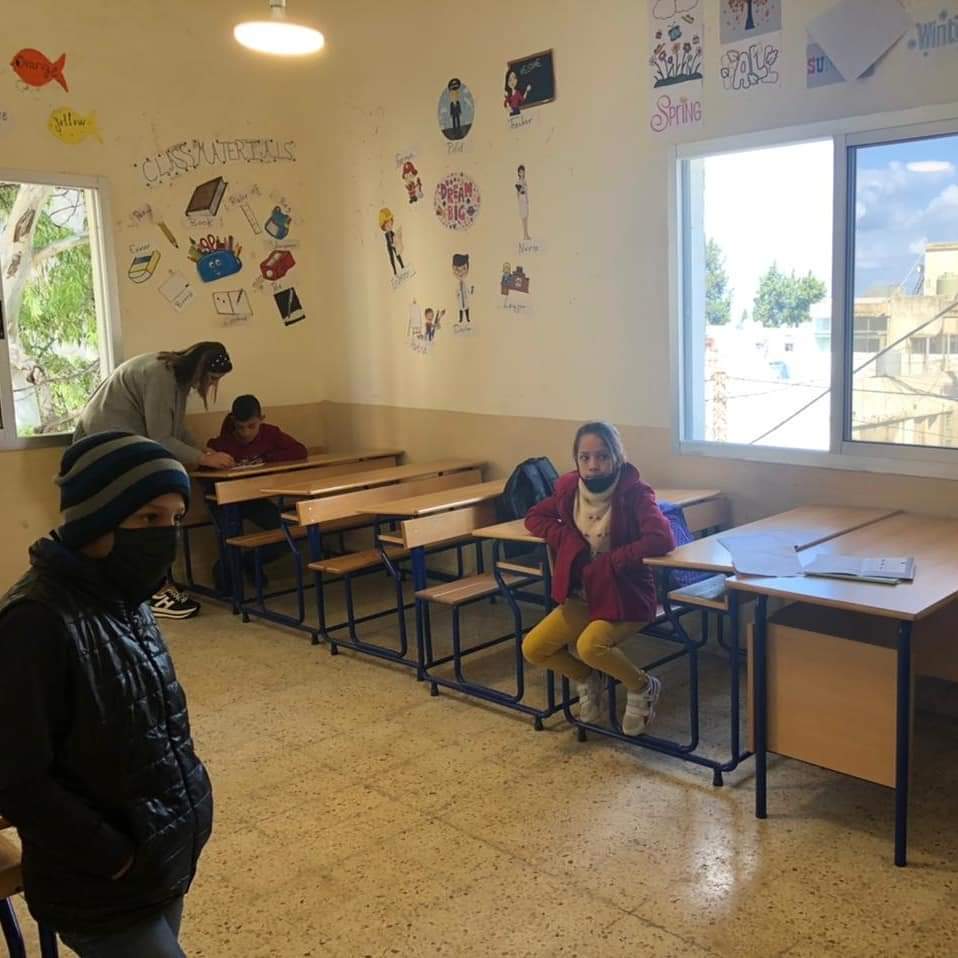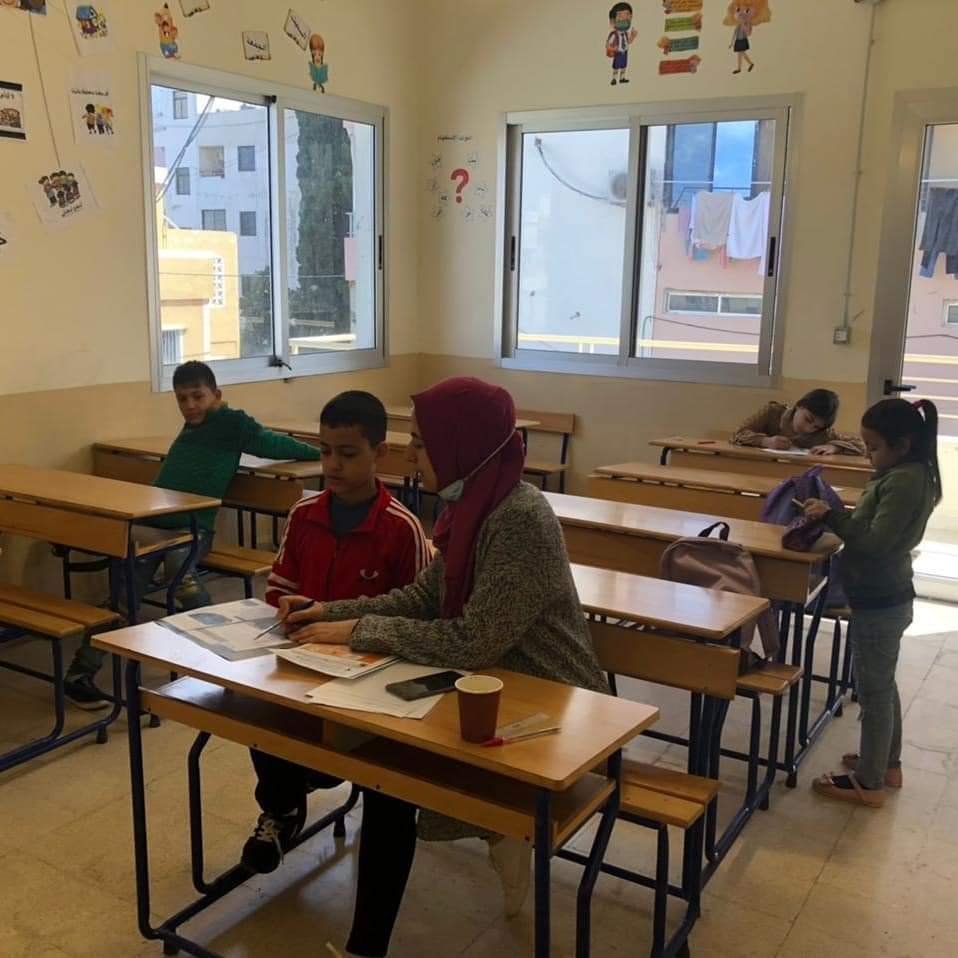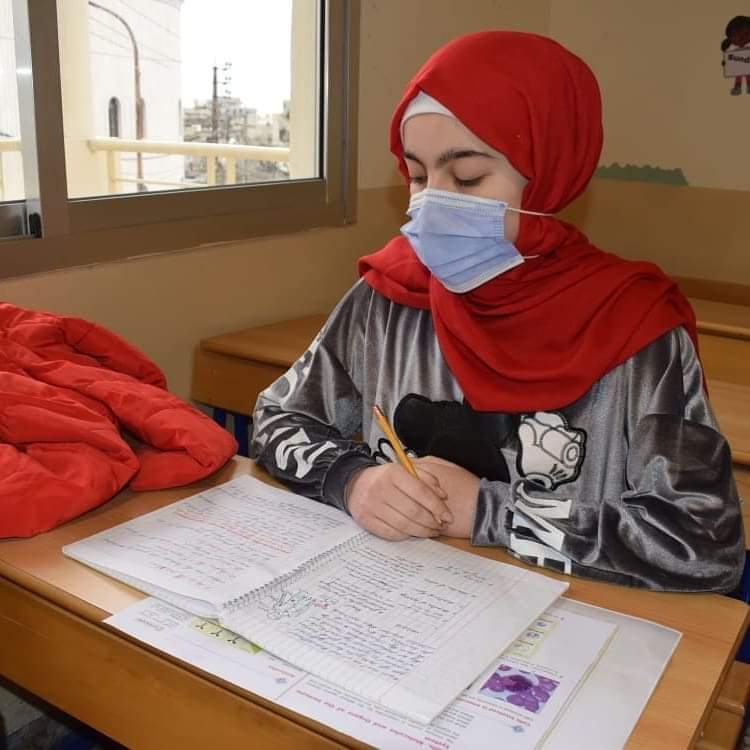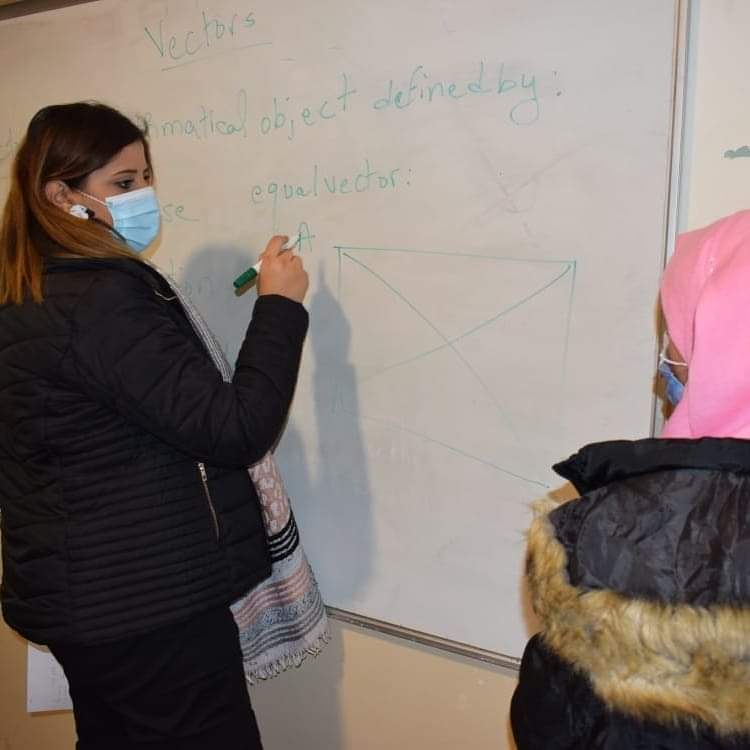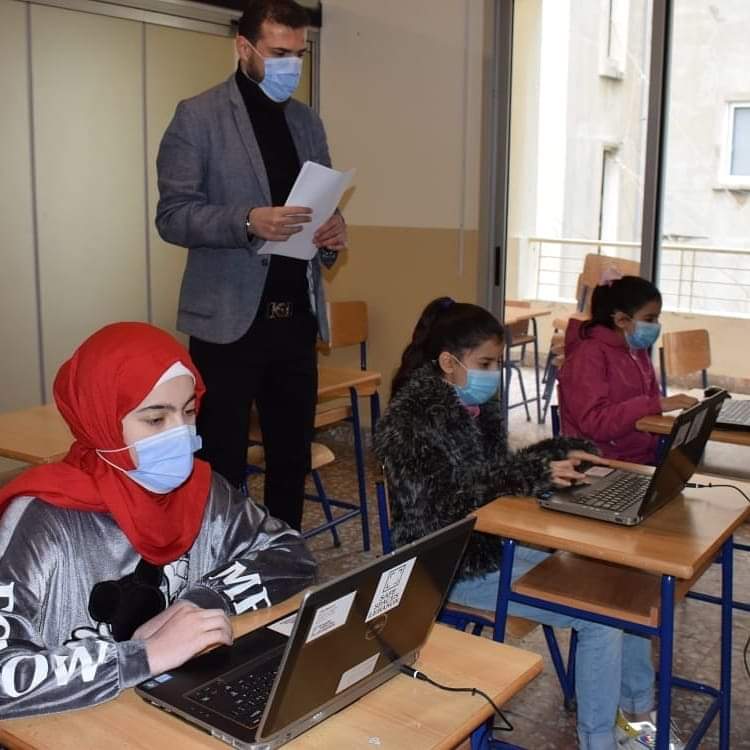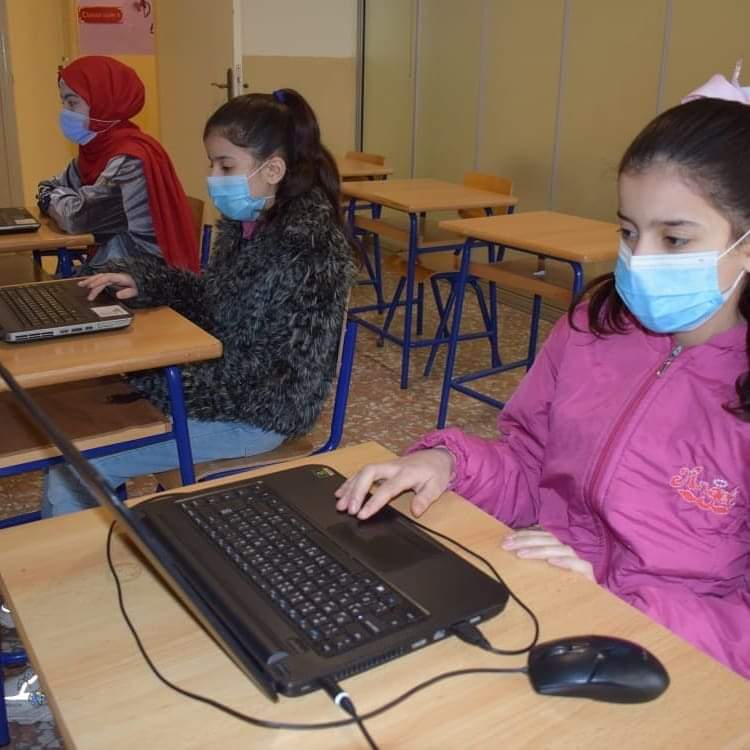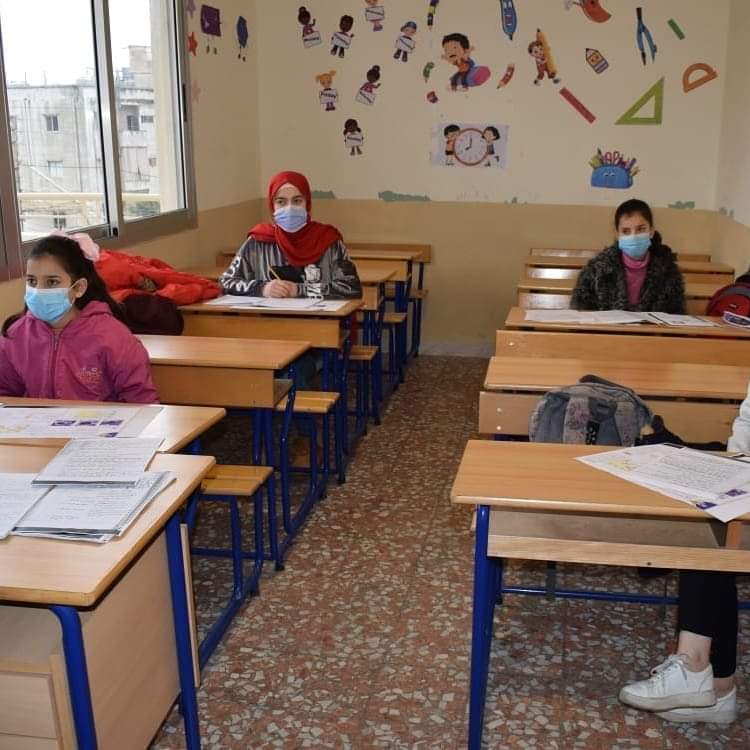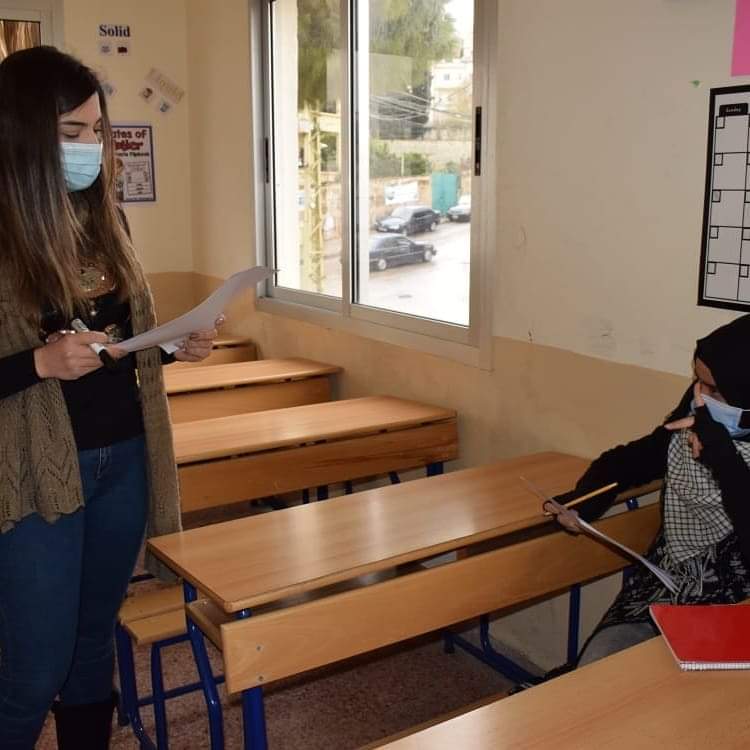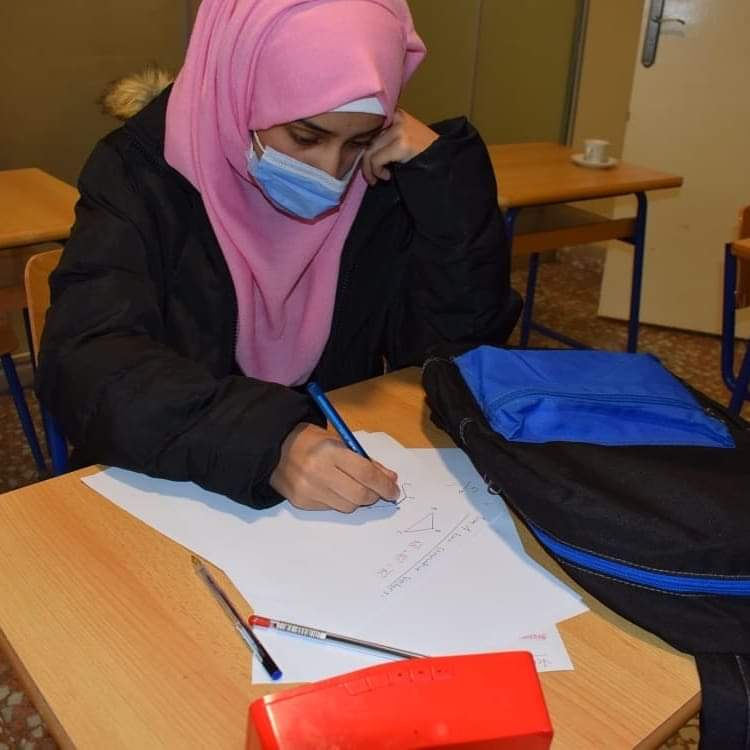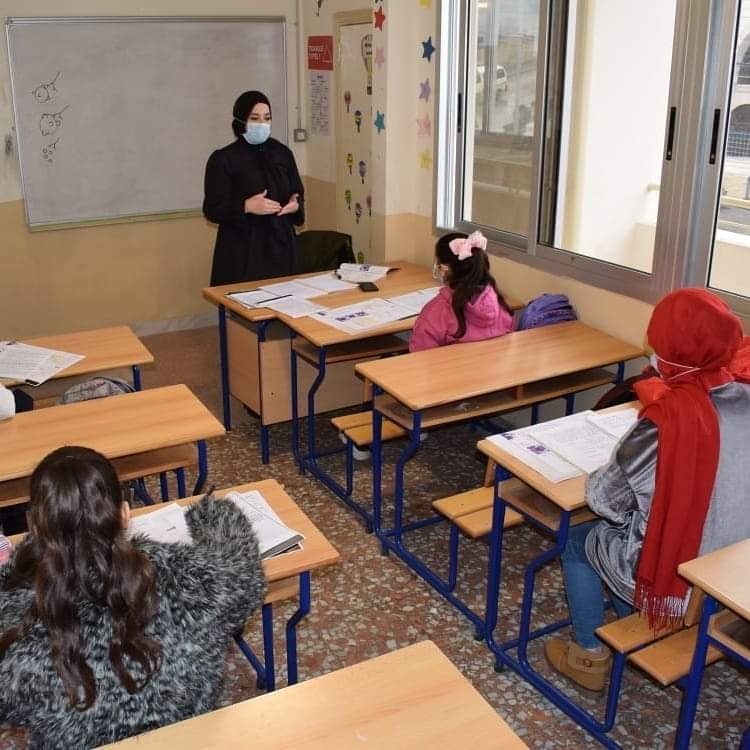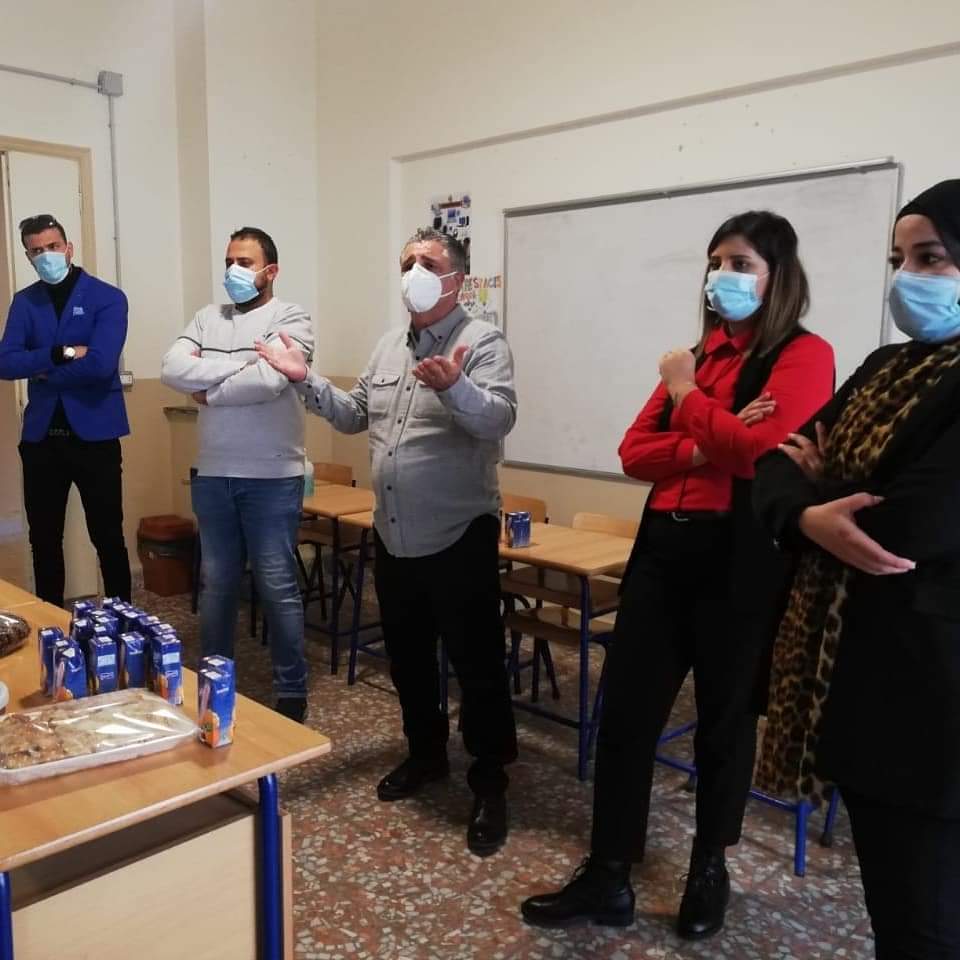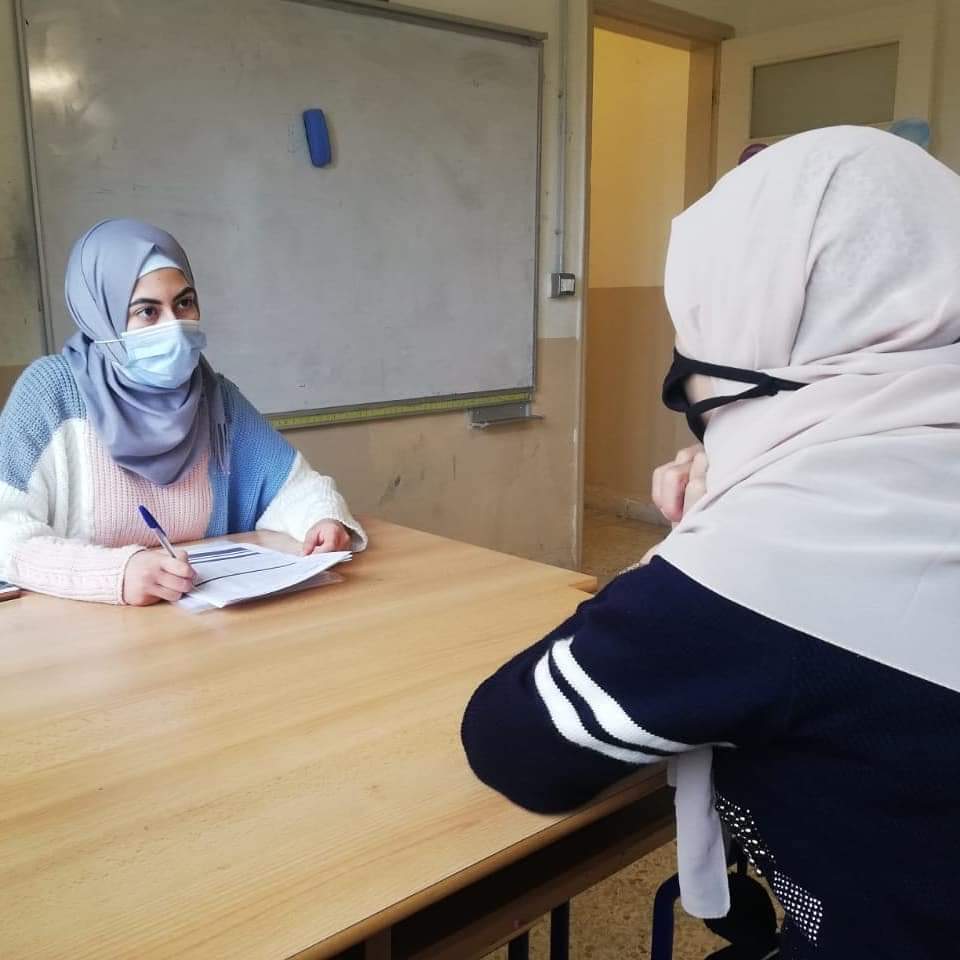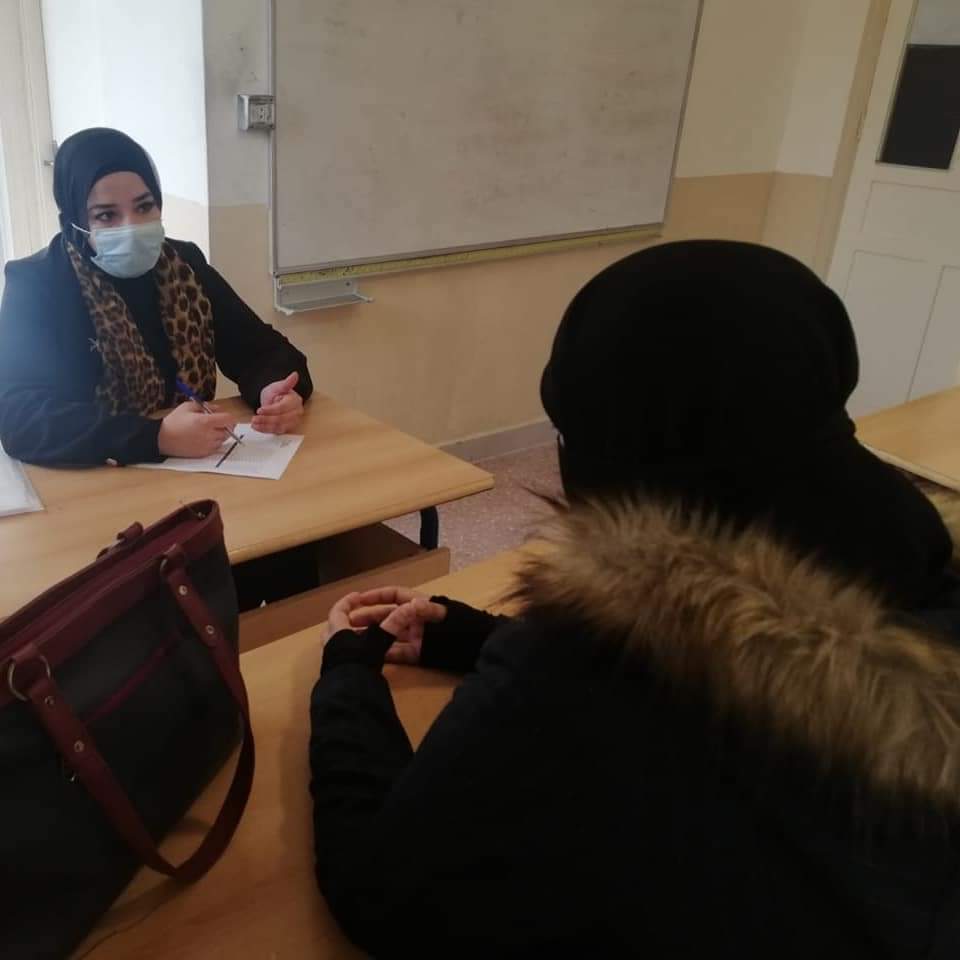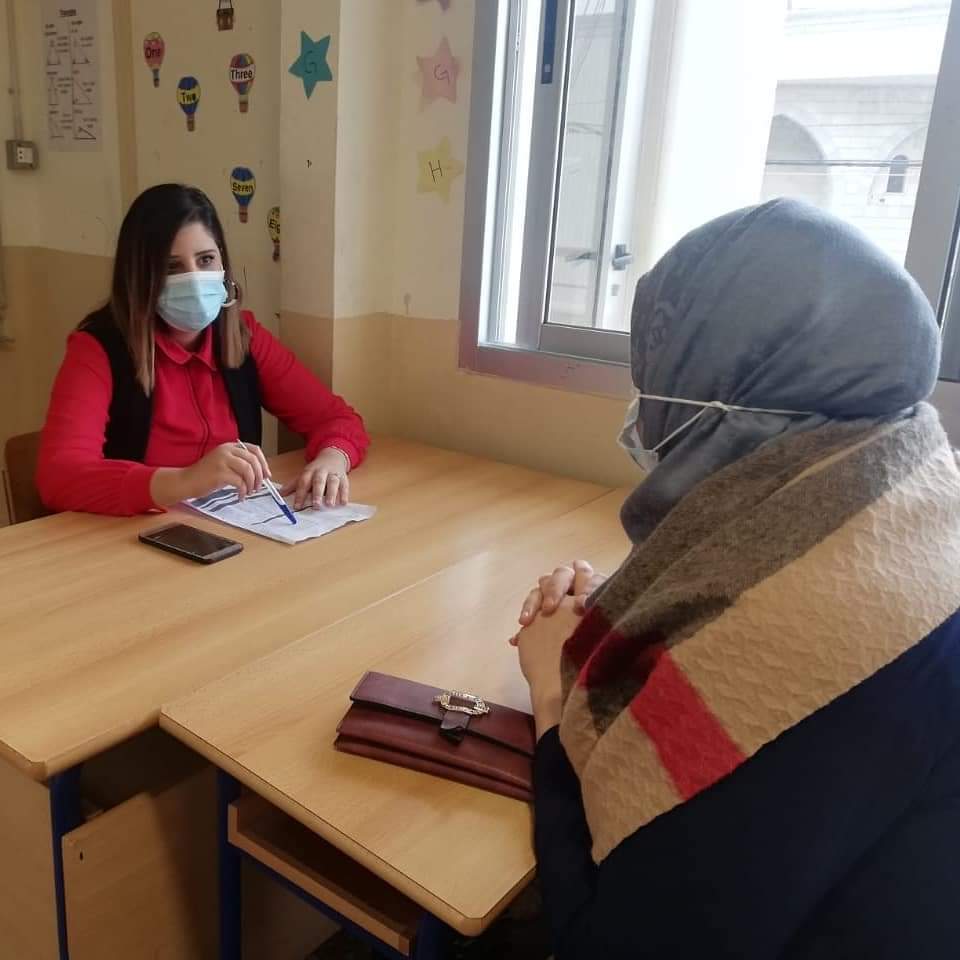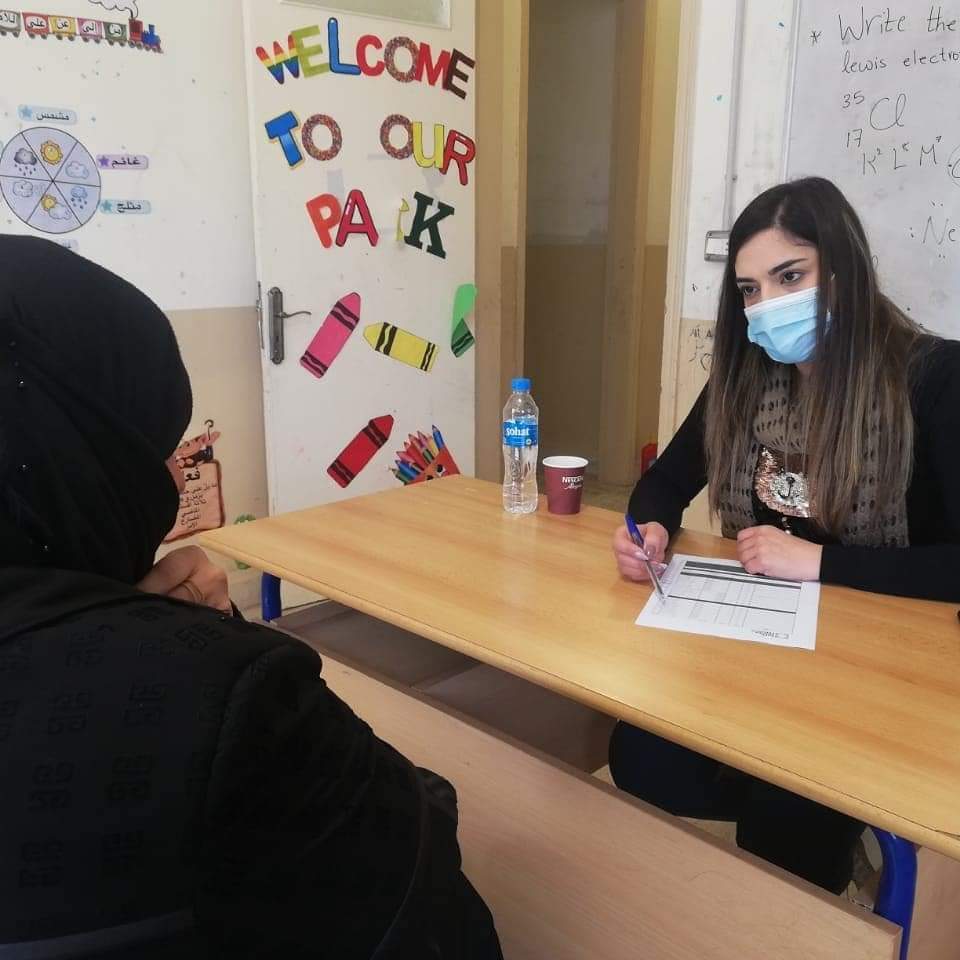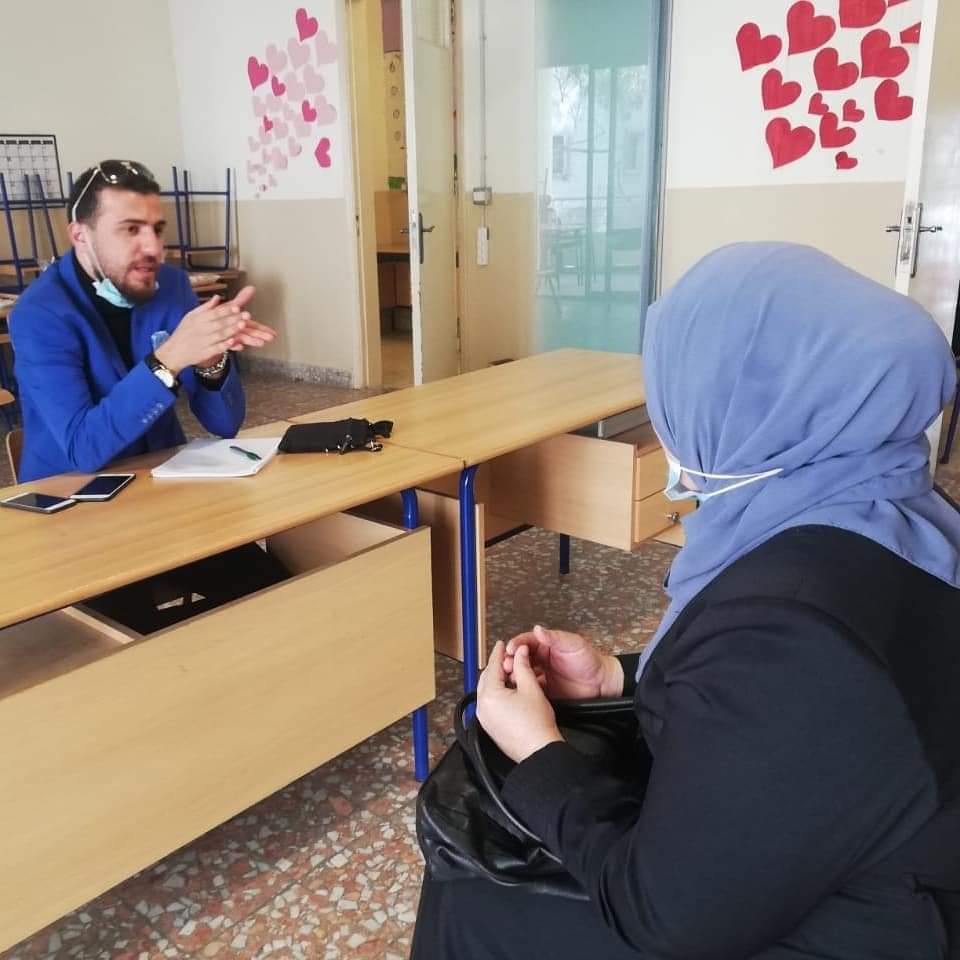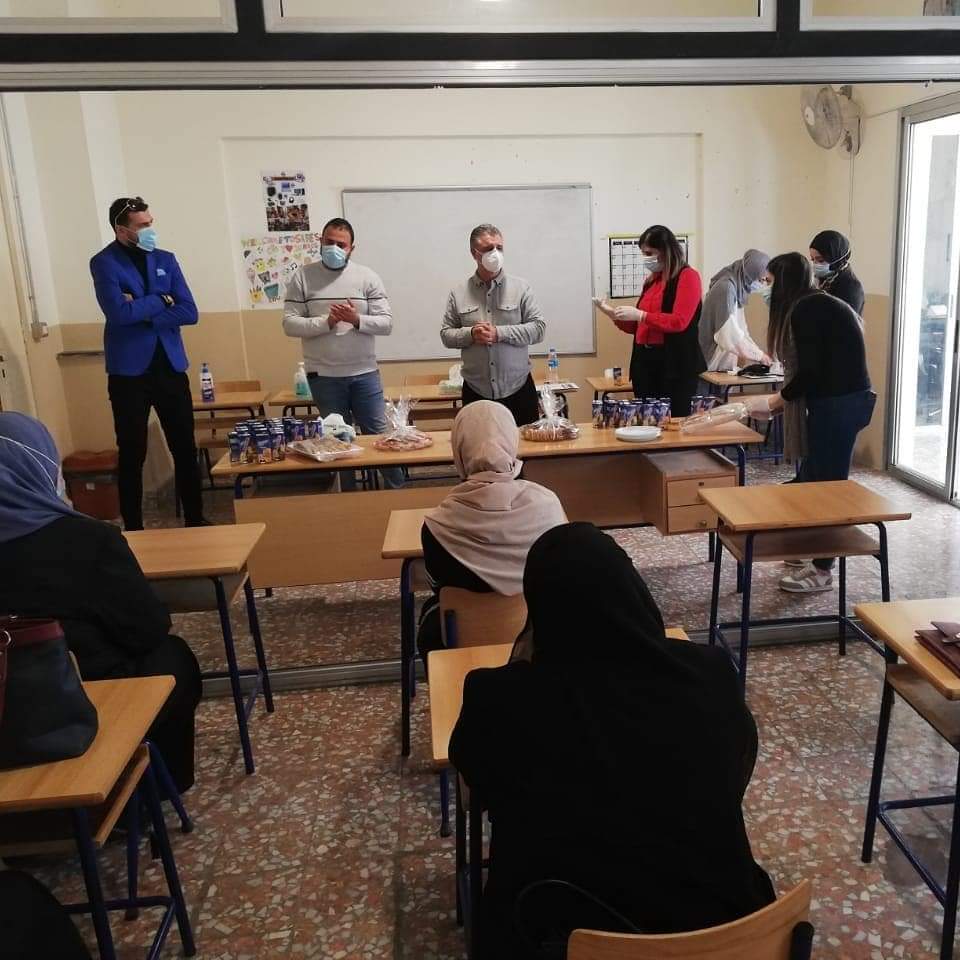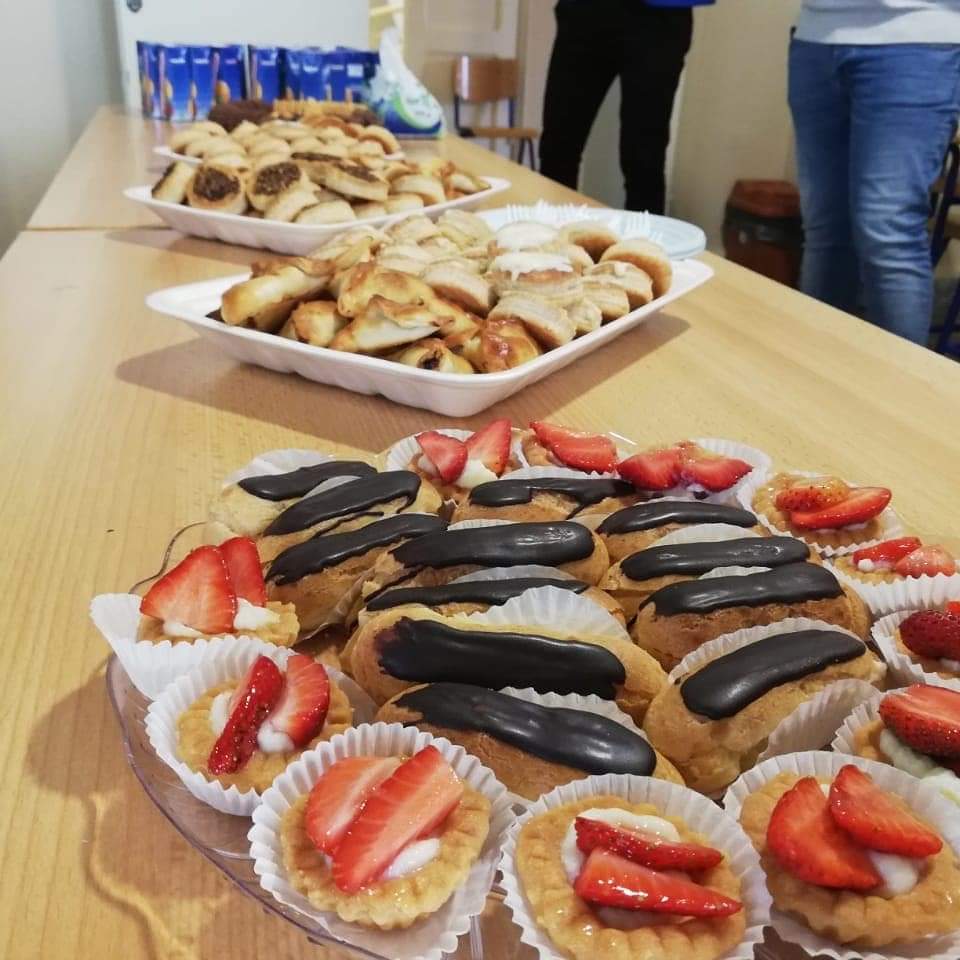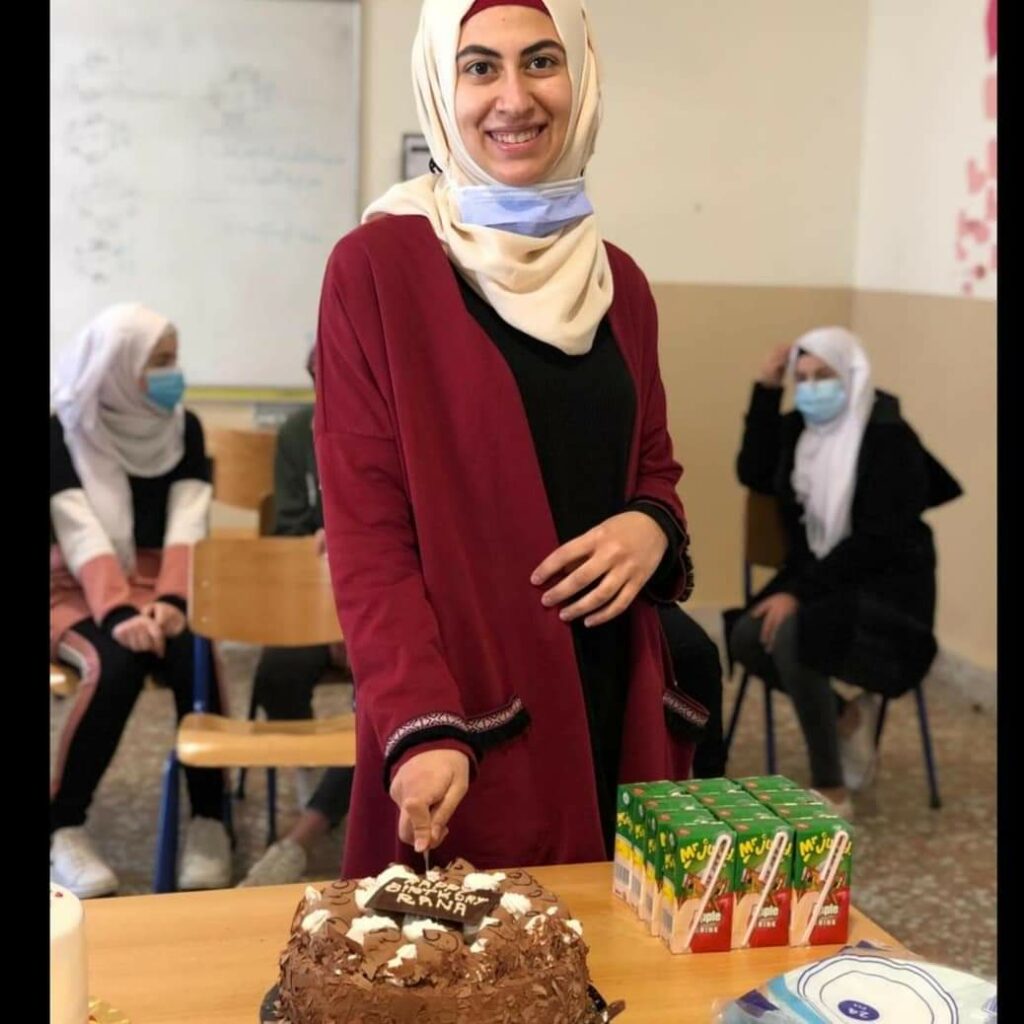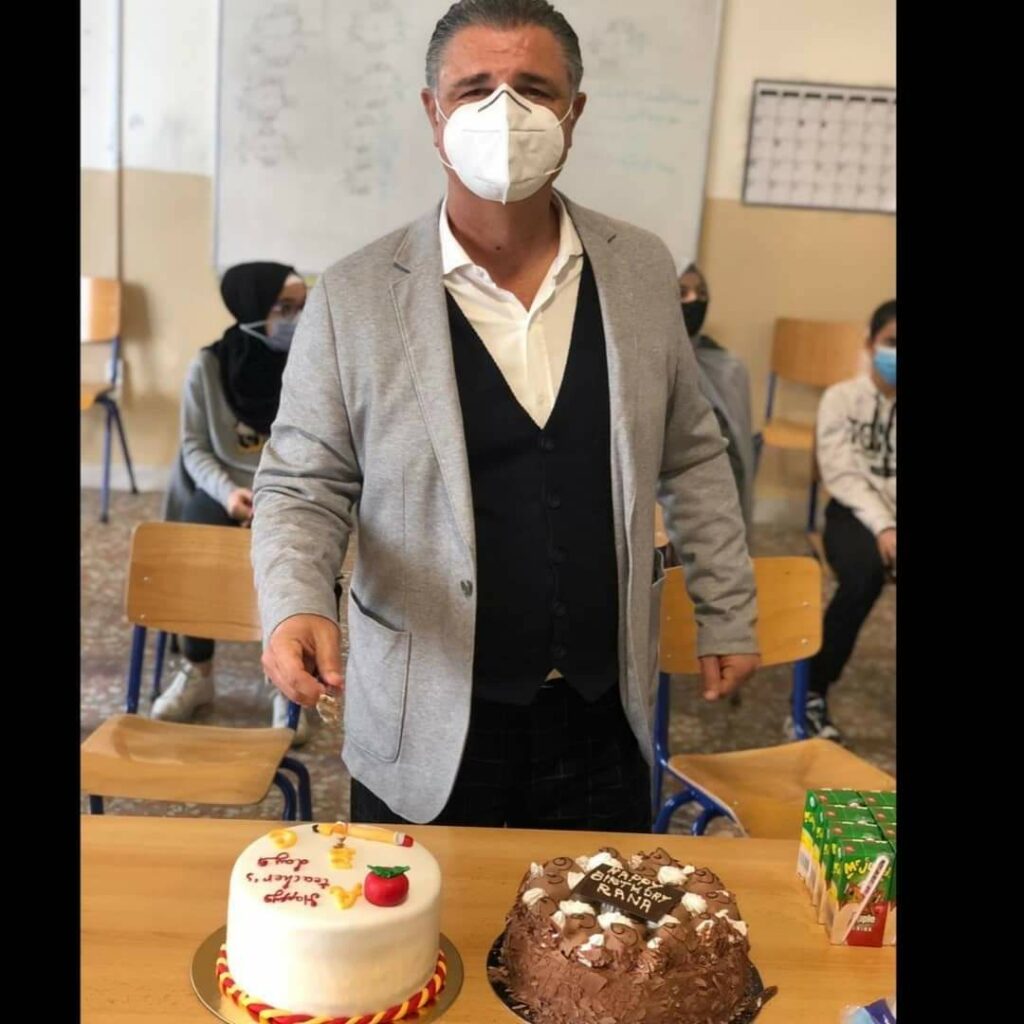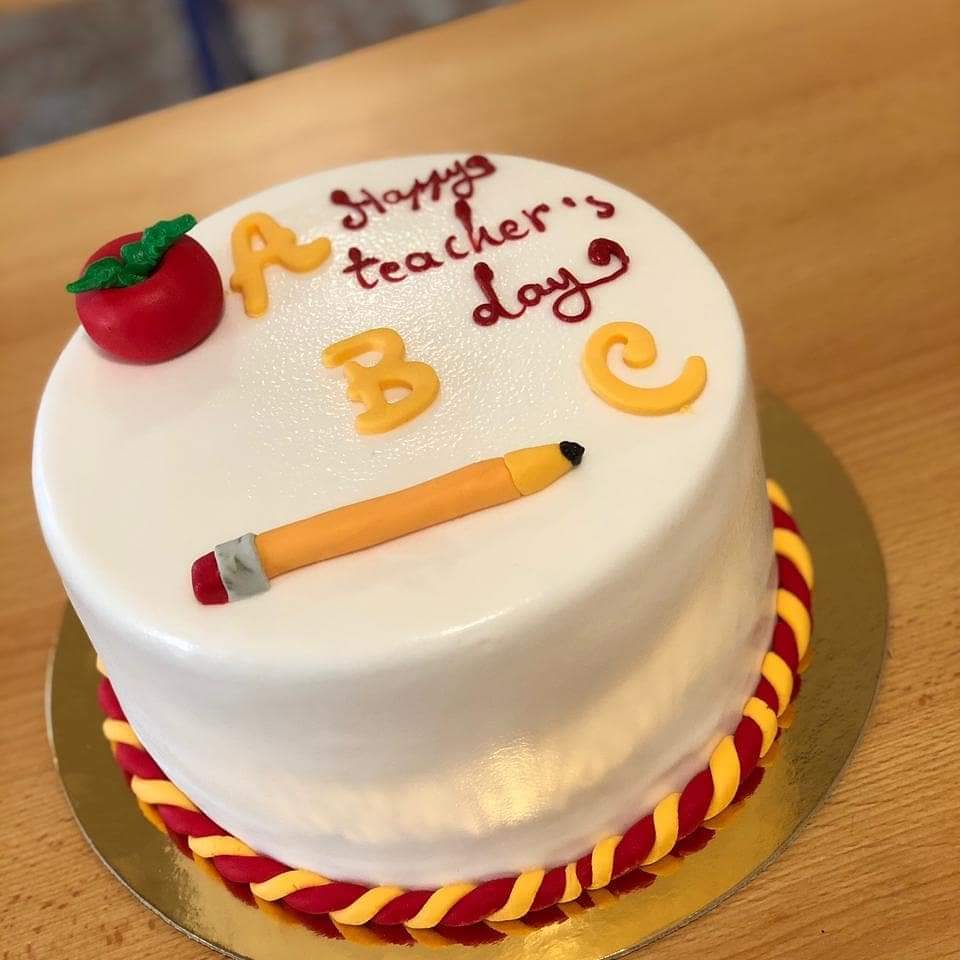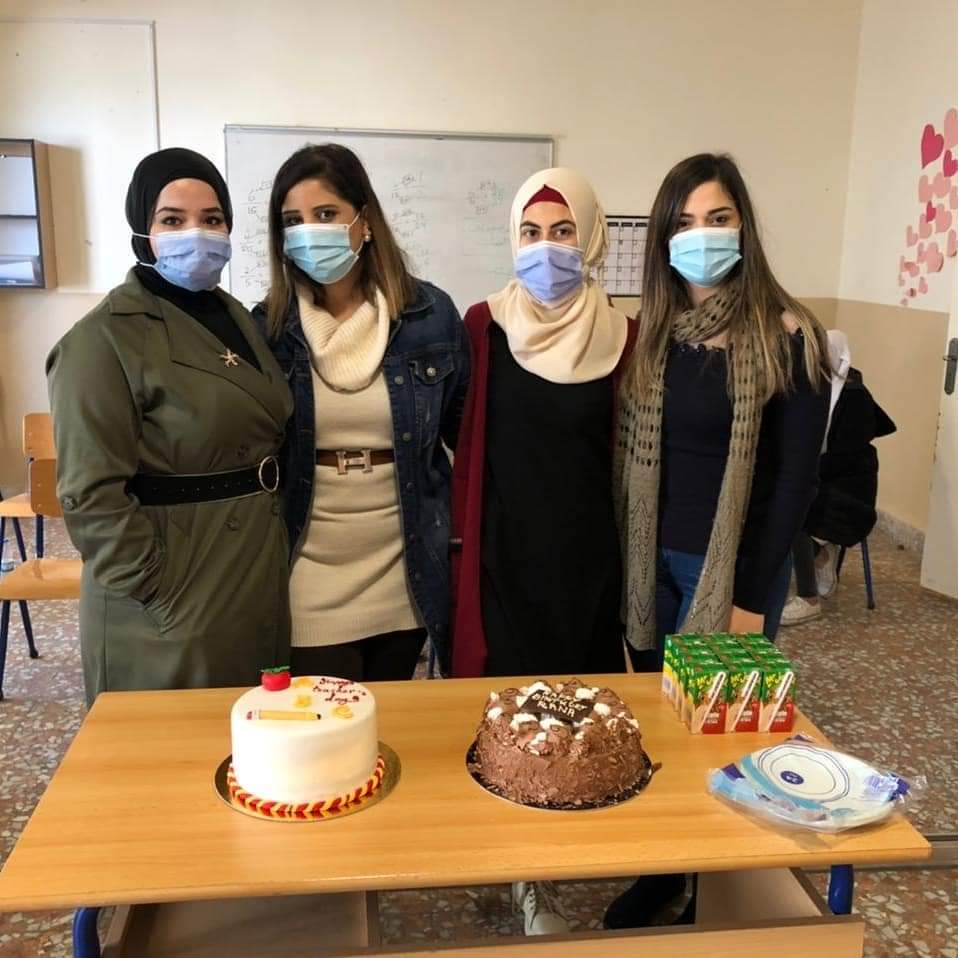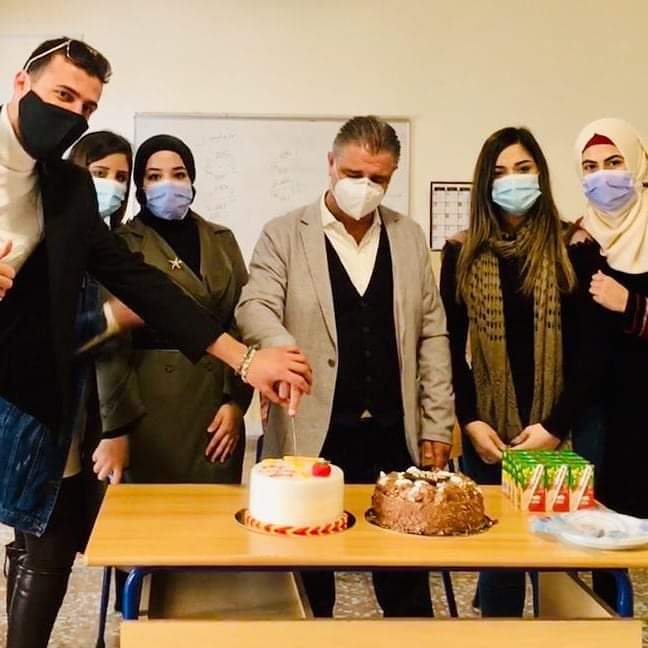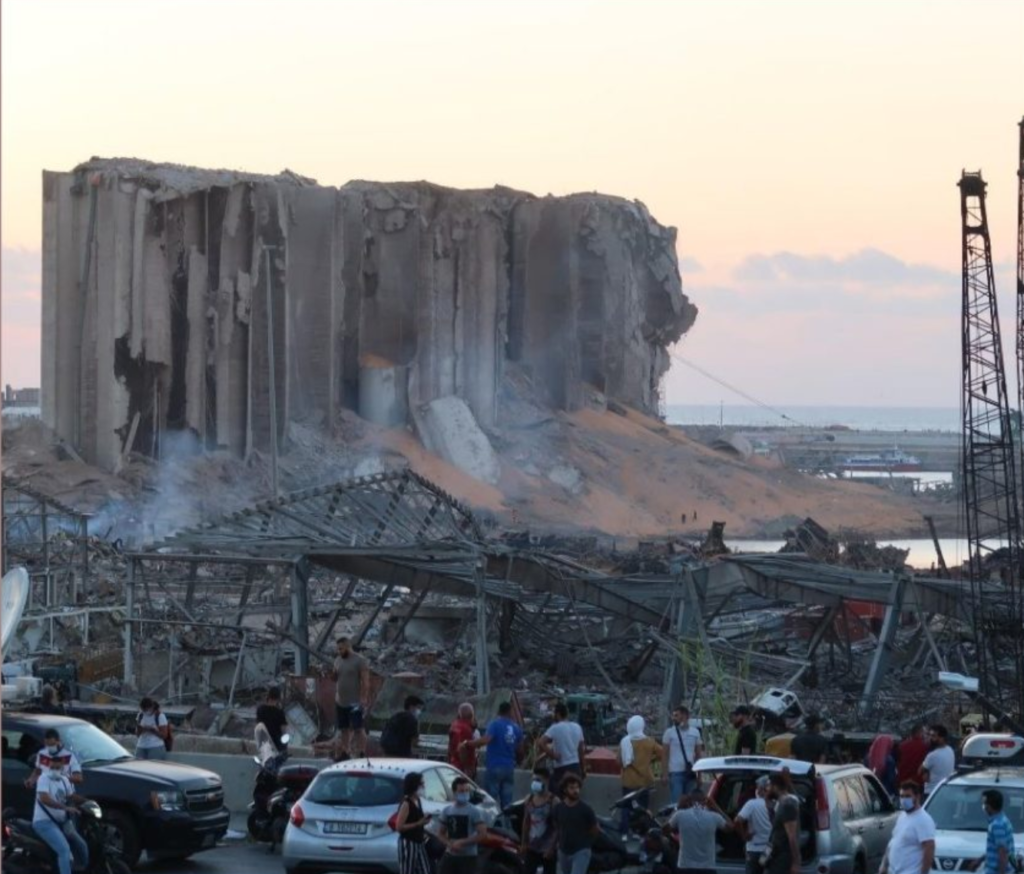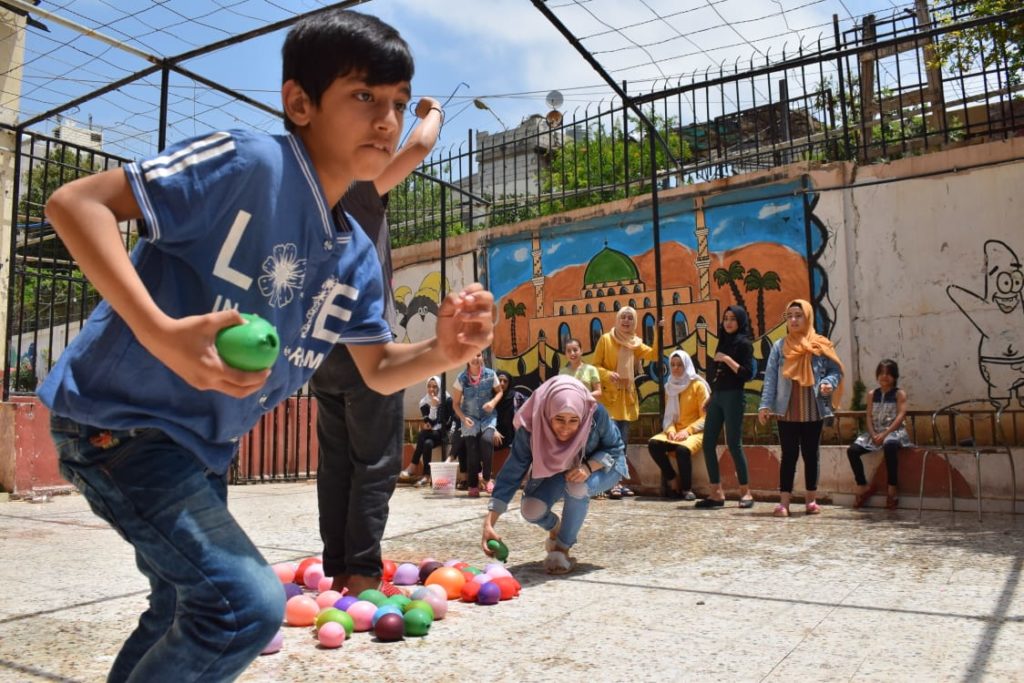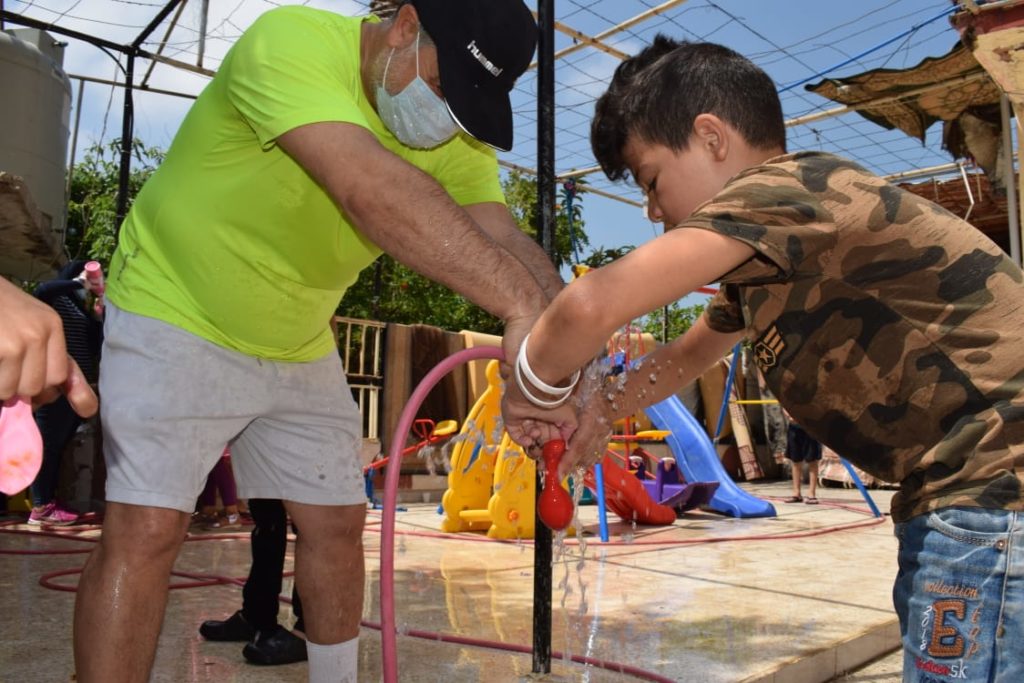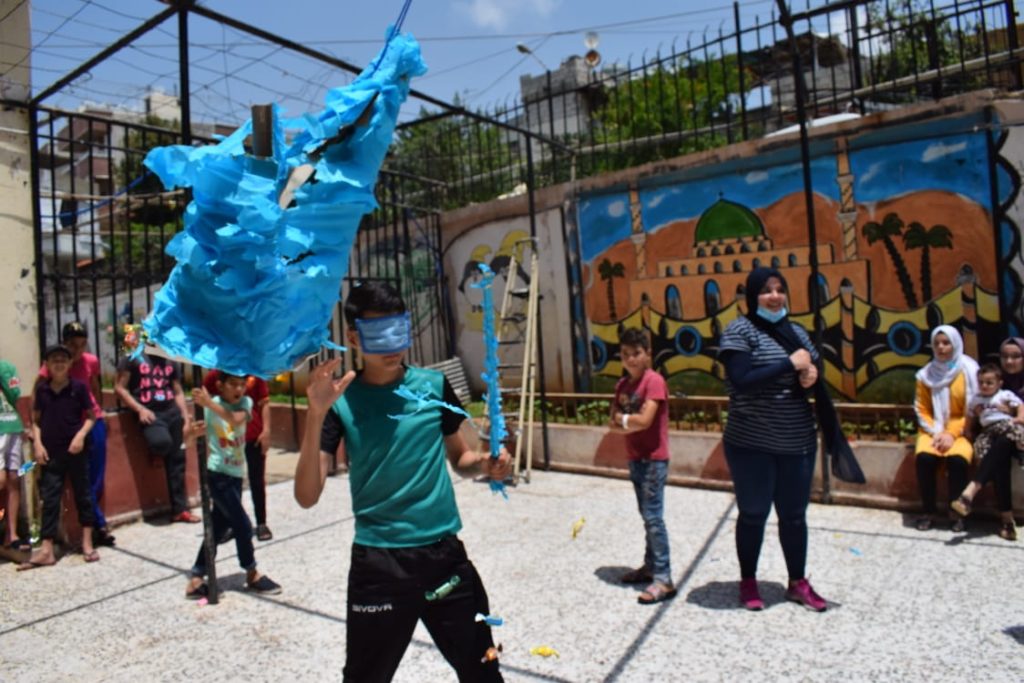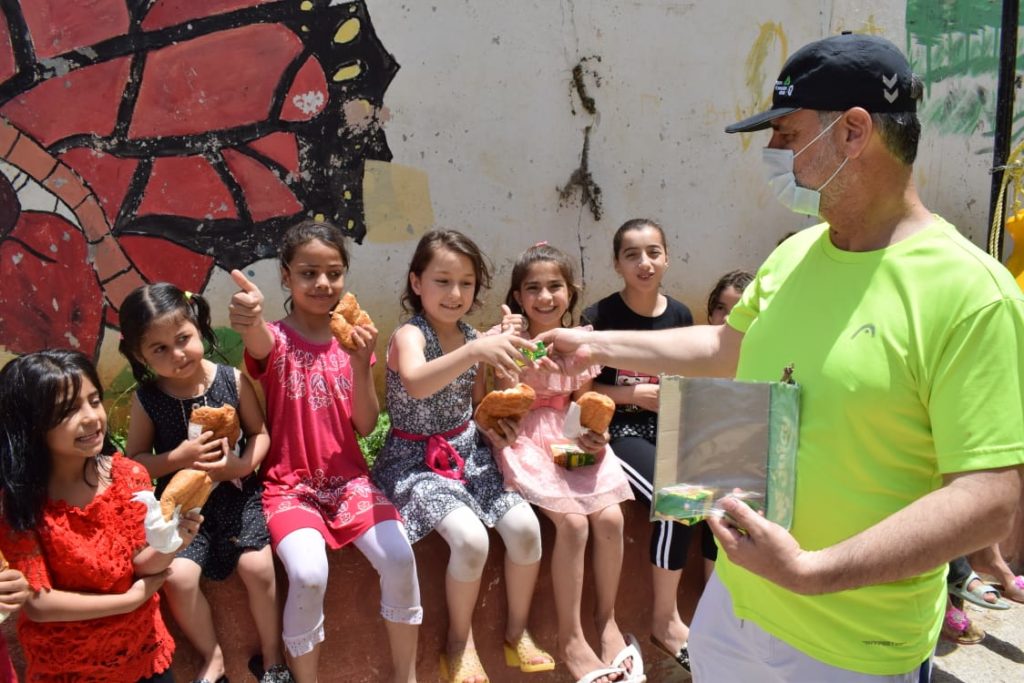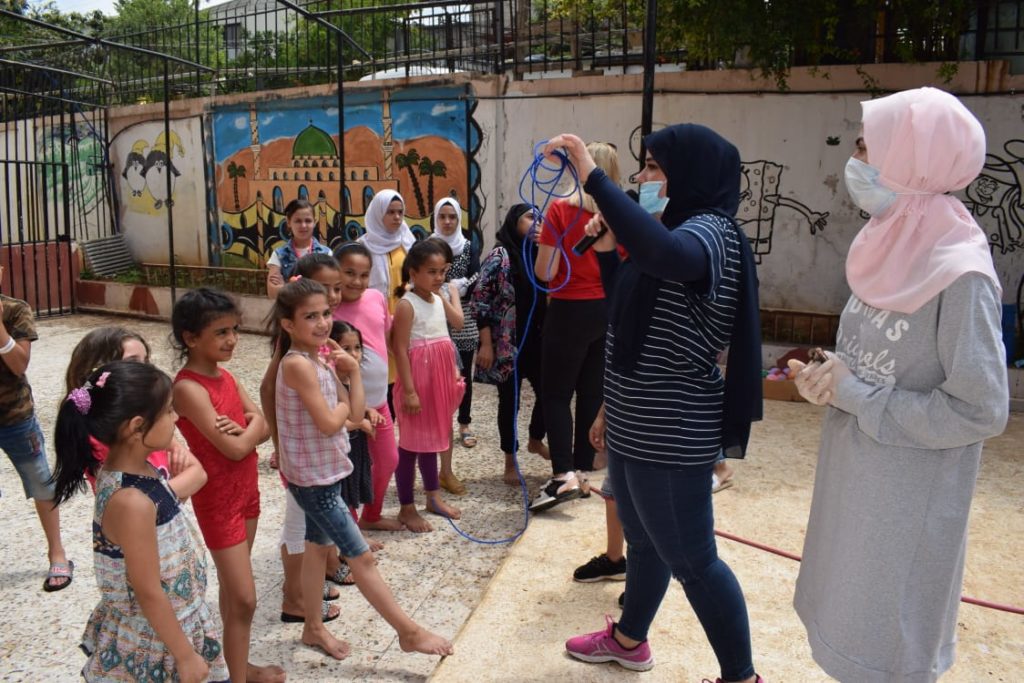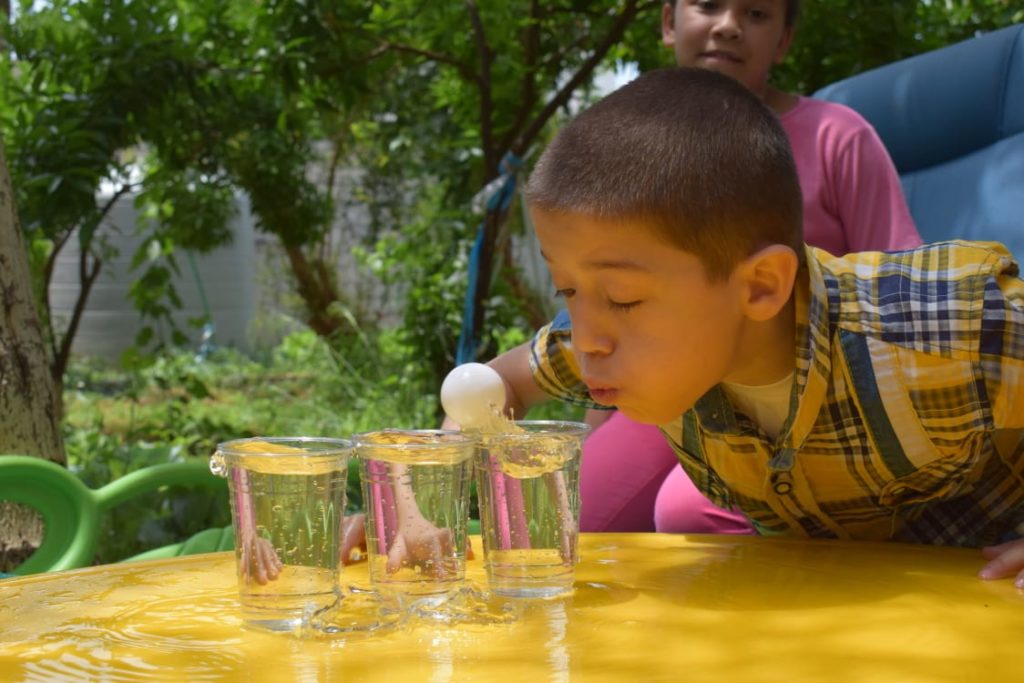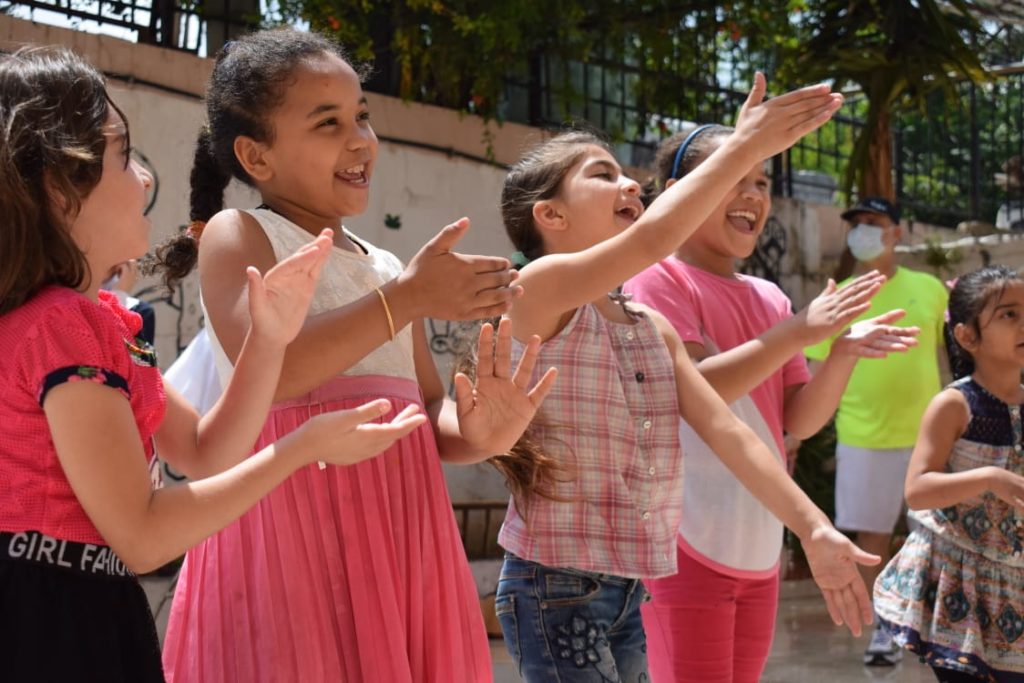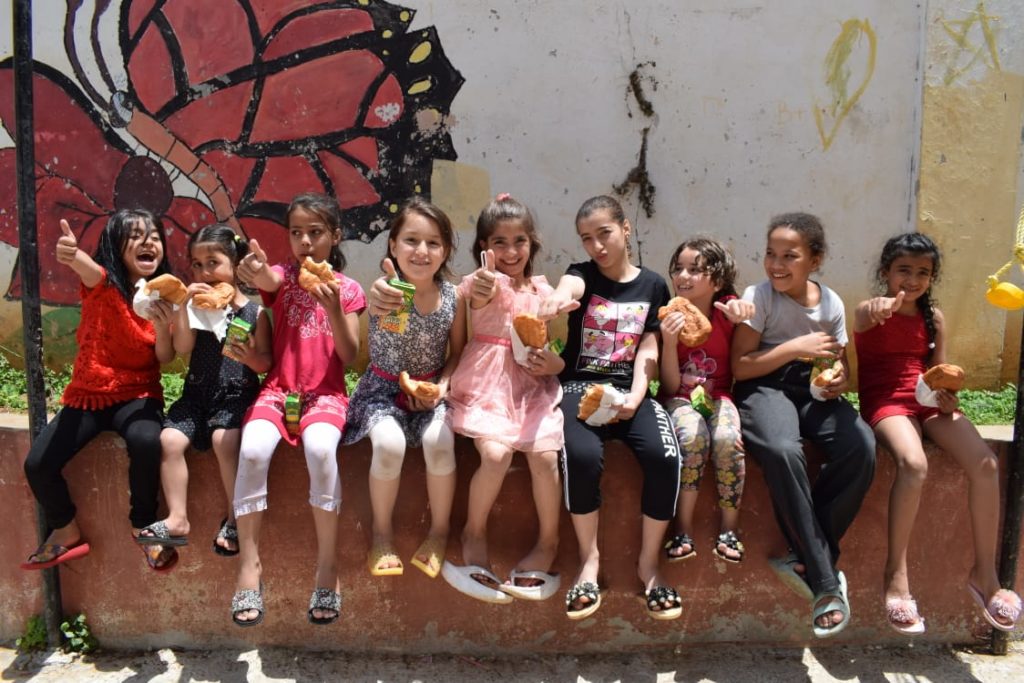Posts by SSL_Comms_Team
Back to School
Our center reopened its doors after the long lockdown, allowing the students to get back to their Arabic, English, Maths, and computer classes regularly.
Welcome back students, we are happy to have you back in your second home.
SafeSpacesLebanon #lockdown #students #syrianrefugees #backtoschool #covi̇d_19 #teacher #coronavirus #learning #study
Parent and Teachers meetings
As our center takes off again with in-person learning, parents were invited to an open day where they were updated about the academic performance of their kids. The teachers took the time to discuss the students strengths, skills and possible areas of development. Mr. Ghaleb Charif, Director of the Lebanon Office, held group meetings with the parents during which he emphasized on the essential role of families in supporting and following-up on the students studies, especially during the lockdown and online learning. Mr. Ghaleb also reaffirmed the role of our center and its goals to provide the needed help to our students.We are delighted to have our students back in the center all the while taking all necessary safety precautions.
SafeSpacesLebanon #teacher #openday #learning #discuss #strength #skills #student #safetyfirst #group #meeting #syrianrefugees #lebanon
Teacher’s Day Celebration
Safe Spaces Lebanon celebrated Teachers’ Day, thanked the team for all its efforts and the teachers for their crucial role in educating and supporting our students.
Safe Spaces Lebanon’s Director Mr. Ghaleb Charif thanked the team on behalf of the Board of Directors, praising its dedication and management skills under the circumstances the world and surely Lebanon are passing through. He saluted their teamwork and solidarity that help in strengthening the supportive environment aimed for at Safe Spaces.
Dear teachers, you are superheroes!
Happy Teachers Day.
SafeSpacesLebanon #teacher #9thofmarch #teachersday #solidarity #students #education #skills #teamwork #support #strength
International Women’s Day
“Feminism isn’t about making women stronger. Women are already strong. It’s about changing the way the world perceives that strength – is so much more than you would ever expect”. G.D Anderson
International Women’s Day.
#SafeSpacesLebanon#8thofmarch
#women#internationalwomensday#lebanon#feminist#strong#strongwomen
Quarterly Update
It has been quite a year at Safe Spaces as we have been challenged by Covid-19 and the devastating bomb explosion in Beirut. In this four minute video, hear Rachel share how our efforts to care for displaced people is expanding as we find creative and meaningful ways to serve and connect during what has been a difficult year. Here are a few highlights:
Support for Beirut
Because Safe Spaces is a trusted NGO, we found ourselves in a position to care for those affected by the explosion in Beirut. Along with other comunity partners, we renovated Karantina Church just in time for Christmas, with plans to renovate and expand the park and playground in the months to come. We also support a community kitchen in the area that is providing weekly meals to those in need. While the explosion is long past, the efforts to rebuild and support Beirut is far from over. Safe Spaces intends to stay faithfully committed to our work in the community.
Serving our Students and Families
We always aim for our students to have holistic care as they grow. This year, that has taken the form of nutrition boxes, which our staff delivers to our school families regularly. By offering these boxes, we provide not only nutritional items but offer much needed financial support in a year that has been especially difficult.
Creative Solutions in an Unprecedented School Year
While our school has had to adjust between periods of quarantine and in-person learning, our teachers have found such creative ways to ensure our students don’t fall behind. And Covid hasn’t stopped us from continuing to improve our offerings! This year, we expanded our curriculum to include STEM boxes, thanks to a generous donation by the Charifs in partnership with Parish Episcopal School. We continue to find ways to make learning fun and help our students pursue their dreams.
Thank you for being part of our Safe Spaces family. Your support allows us to serve faithfully, in ways we know and trust will have a lasting impact.

We are so grateful for you!
Blessings on the journey,
The Board of Safe Spaces
Teaching during COVID
As we begin a second month of general lockdown, we increasingly miss our students’ voices and laughs in the center’s halls. We miss their presence, their focus, and their participation in class. We also miss the teachers’ voices in classes, guiding the students, nourishing their minds, and helping them in growing their hope for a brighter future. We all hope for a better tomorrow. We are certain that we will be reunited with our students soon, and that the center will become their safe space once again. Until then, the center’s doors remain closed as our part in ensuring safety for everyone and their families in the middle of this pandemic.#SafeSpacesLebanon#hopeful#covi̇d_19#lebanon![]() #syrian_refugees#students#lockdown2021#pandami̇c#teacher#focus#future
#syrian_refugees#students#lockdown2021#pandami̇c#teacher#focus#future
Learning Robotics
As an act of solidarity, the chair of the board Rev. Rachel Baughman and the vice president Dr. Ghassan Charif visited our center in Lebanon.
During his visit, Dr. Charif announced the donation that Parish Episcopal school made to Safe Spaces Lebanon through him and Mrs. Mona Charif. The Executive Director of MAKERplay and the Director of STEM Education at Parish Episcopal School in Dallas, Jennifer Makins, donated four robotics kits and fourteen MAKERplay. Jennifer will be helping Safe Spaces set robotic sessions for our students, which will be in coordination with the teachers and the instructors at Safe Spaces Lebanon Center.
Our teachers have received the kits, and they monitored Dr. Charif while he was demonstrating how to set them up.
Thank you, Jenn Makins and Parish Episcopal school, for your generous donations and your support.
#Safe_Spaces_Lebanon#children#students#lebanon#lovetolearn#syrian_refugee#learning#technology#maker_play_parish@makerplayparish

Lady of Karantina cleanup
We will all be working together to clean up, restore, rehabilitate the Lady of Karantina historic church.
After the clean-up is completed, we will be working on creating the children’s “healing” garden on the land owned by and near the Lady of Karantina Church in the Karantina neighborhood.
The project includes a communal kitchen and a garden divided into a playground, a vegetable garden and a lunch space. Once rehabilitated, the garden will serve as a “healing” space for children, where they will be able to participate in recreational activities in hopes of overcoming the traumas they have developed as a result of the explosion that took place on August 4th.
In parallel to the rehabilitation works, we are hoping to initiate shared community spaces in the Karantina neighborhoods, where the children will also be able to interact with their peers from different backgrounds and faiths.
Safe Spaces Lebanon and OffreJoie teams started by installing tents, planned to serve as a break area for volunteers. The rehabilitation works will continue daily, and we will keep you updated on all the progress as they take place.

Summer Camp Update
Our students are happy to finally be back in the school after the recent lockdown in Lebanon due to the Covid-19 virus. They are excited to get back to learning English, Arabic, and now are using our new Computer Lab. We have the students using social distancing and have each class separated.
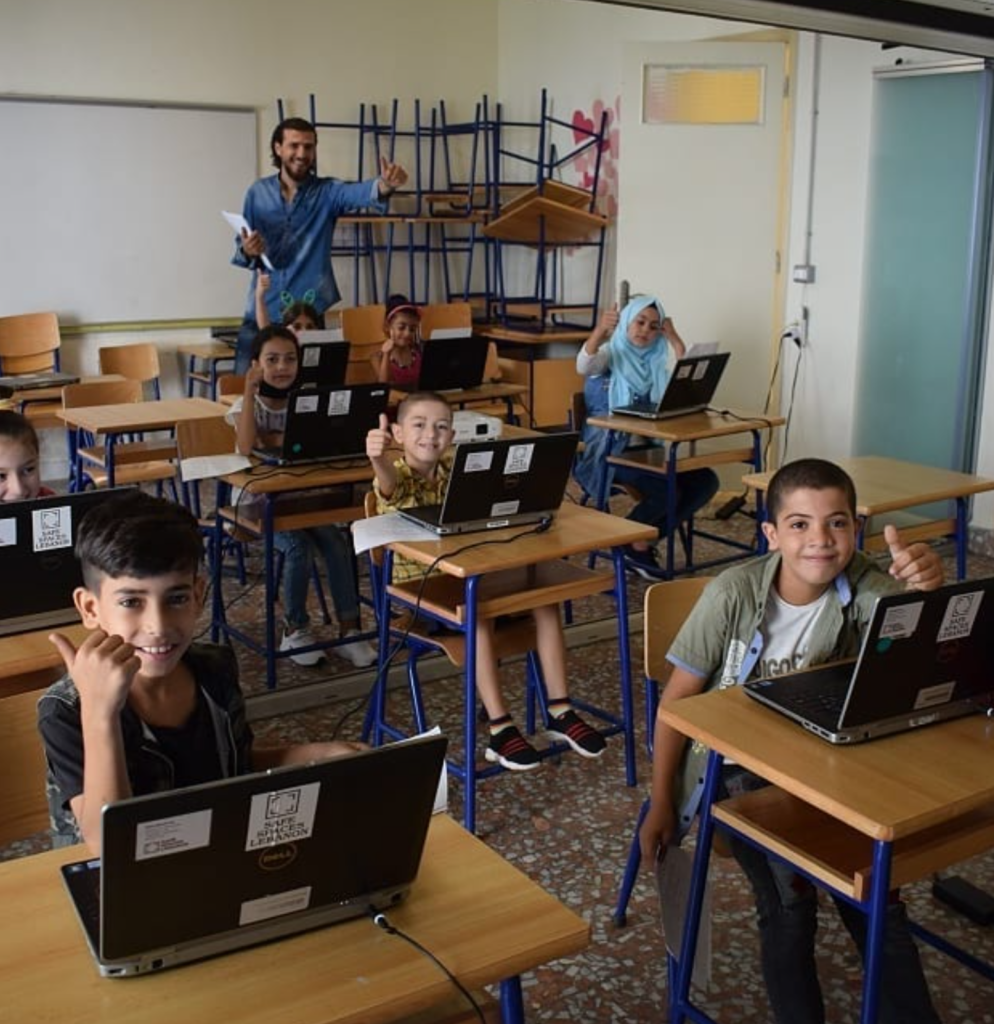
Your constant support is what is keeping Safe Spaces a place for these children to overcome difficulties and continue rebuilding their lives. Safe Spaces Lebanon not only provides their education but also gives them hope and a future.
A moment of silence
Beirut observed a minute of silence at 6:08 p.m. on Friday September 4, marking the passing of exactly one month since the devastating Beirut Port explosion that shook the country and the world on Aug. 4, and in honor of the victims killed by the blast. The blast is now listed as one of the strongest non-nuclear explosions ever recorded, killing over 190 people and injuring more than 6,500. According to U.N. estimates 200,000 housing units and 40,000 buildings were damaged in the blast. 3,000 buildings were damaged so severely that they are currently uninhabitable. The World Health Organization did an assessment of area hospitals and determined that eight were partially damaged and one is completely destroyed. Out of the eight hospitals surveyed, only three are currently functional. Four field hospitals were set up in the affected areas in order to support local hospitals.
The Ministry of Social Affairs (MOSA) established 3 tents in Horsh Beirut, Mar Mekhael and Khanda El Ghamik providing psychological support to families. Governorates mobilized resources through NGOs and International Agencies to provide people in alternative shelters with required support. 329 different entities (national, international) are currently active stakeholders in Beirut response area.
In an effort to ensure that all children affected by the Beirut blast can access education when the new school year starts this month, UNICEF called for urgent actions and increased support as 163 public and private schools were damaged by the explosions, impacting over 70,000 students and 7,600 teachers.
An estimated 600,000 children live within a 20-kilometer radius of the blast and could be suffering negative short-term and long-term psychological impacts.
This all happened at a time where the Lebanese people are facing an increasingly desperate situation with the impending economic collapse and lack of government services in their country, now can’t bear costs of making homes livable. Costs are soaring as the Lebanese pound continues to depreciate. Many people cannot obtain food, medicine, power, or shelter. In the absence of near-term solutions, over 50% of the Lebanese population is facing poverty. The COVID-19 outbreak has compounded the severity of the hardship faced by so many Lebanese. The situation is even worse among Lebanon’s refugee population. This is where the critical role of humanitarian organizations, both local and international, has become an indispensable tool for reducing the pain of the more than 50% of Lebanese now living in poverty.
Teams of volunteers, a symbol of the help-each-other spirit that’s grown up from the failures of Lebanon’s corrupt political class, and from the believe that the vibrant civil society will play a key role in channeling the international aids to local beneficiaries especially that affected people don’t trust the government, and in “preventing clientelistic groups from infiltrating the donation system,”
Safe Spaces Lebanon had stepped up when needed most. In response to the explosion our team deployed to the disaster area to provide food, water, and cleanup assistance. Safe Spaces Lebanon’s team under Ghaleb El Charif’s direction and supervision were able to make multiple visits to the affected areas and meet with the several organizations, local and international, all came to offer help.
Our efforts lead us to a multi partner project with Offrejoie (a voluntary movement across Lebanon to clean, restore and rehabilitate damaged areas), AUB (American University of Beirut landscaping and design team).
One Month Later
Beirut observed a minute of silence at 6:08 p.m. on Friday September 4, marking the passing of exactly one month since the devastating Beirut Port explosion that shook the country and the world on Aug. 4, and in honor of the victims killed by the blast. The blast is now listed as one of the strongest non-nuclear explosions ever recorded, killing over 190 people and injuring more than 6,500. According to U.N. estimates 200,000 housing units and 40,000 buildings were damaged in the blast. 3,000 buildings were damaged so severely that they are currently uninhabitable. The World Health Organization did an assessment of area hospitals and determined that eight were partially damaged and one is completely destroyed. Out of the eight hospitals surveyed, only three are currently functional. Four field hospitals were set up in the affected areas in order to support local hospitals.
The Ministry of Social Affairs (MOSA) established 3 tents in Horsh Beirut, Mar Mekhael and Khanda El Ghamik providing psychological support to families. Governorates mobilized resources through NGOs and International Agencies to provide people in alternative shelters with required support. 329 different entities (national, international) are currently active stakeholders in Beirut response area.
In an effort to ensure that all children affected by the Beirut blast can access education when the new school year starts this month, UNICEF called for urgent actions and increased support as 163 public and private schools were damaged by the explosions, impacting over 70,000 students and 7,600 teachers.
An estimated 600,000 children live within a 20-kilometer radius of the blast and could be suffering negative short-term and long-term psychological impacts.
This all happened at a time where the Lebanese people are facing an increasingly desperate situation with the impending economic collapse and lack of government services in their country, now can’t bear costs of making homes livable. Costs are soaring as the Lebanese pound continues to depreciate. Many people cannot obtain food, medicine, power, or shelter. In the absence of near-term solutions, over 50% of the Lebanese population is facing poverty. The COVID-19 outbreak has compounded the severity of the hardship faced by so many Lebanese. The situation is even worse among Lebanon’s refugee population. This is where the critical role of humanitarian organizations, both local and international, has become an indispensable tool for reducing the pain of the more than 50% of Lebanese now living in poverty.
Teams of volunteers, a symbol of the help-each-other spirit that’s grown up from the failures of Lebanon’s corrupt political class, and from the believe that the vibrant civil society will play a key role in channeling the international aids to local beneficiaries especially that affected people don’t trust the government, and in “preventing clientelistic groups from infiltrating the donation system,”
Safe Spaces Lebanon had stepped up when needed most. In response to the explosion our team deployed to the disaster area to provide food, water, and cleanup assistance. Safe Spaces Lebanon’s team under Ghaleb El Charif’s direction and supervision were able to make multiple visits to the affected areas and meet with the several organizations, local and international, all came to offer help.
Our efforts lead us to a multi partner project with Offrejoie (a voluntary movement across Lebanon to clean, restore and rehabilitate damaged areas), AUB (American University of Beirut landscaping and design team).
We will all be working together to clean up, restore, rehabilitate the Lady of Karantina historic church.
After the clean-up is completed, we will be working on creating the children’s “healing” garden on the land owned by and near the Lady of Karantina Church in the Karantina neighborhood.

The project includes a communal kitchen and a garden divided into a playground, a vegetable garden and a lunch space. Once rehabilitated, the garden will serve as a “healing” space for children, where they will be able to participate in recreational activities in hopes of overcoming the traumas they have developed as a result of the explosion that took place on August 4th.
In parallel to the rehabilitation works, we are hoping to initiate shared community spaces in the Karantina neighborhoods, where the children will also be able to interact with their peers from different backgrounds and faiths.
Safe Spaces Lebanon and OffreJoie teams started by installing tents, planned to serve as a break area for volunteers. The rehabilitation works will continue daily, and we will keep you updated on all the progress as they take place.














Boxes of Hope
This year, Eid el-Adha occurs in the midst of a grave economical crisis, the corona virus pandemic, and all social, economical and political difficulties that come with the two. Safe Spaces Lebanon hence distributed food units to the families of its students, to alleviate some difficulties. In the hopes of brighter days, we join our efforts to facilitate spreading joy in darker ones.
#Safe_Spaces_Lebanon #food #eid_el_adha #children #students #covid19 #boxs_of_hope #syrian_refugee #lebanon @ Sidon, Lebanon
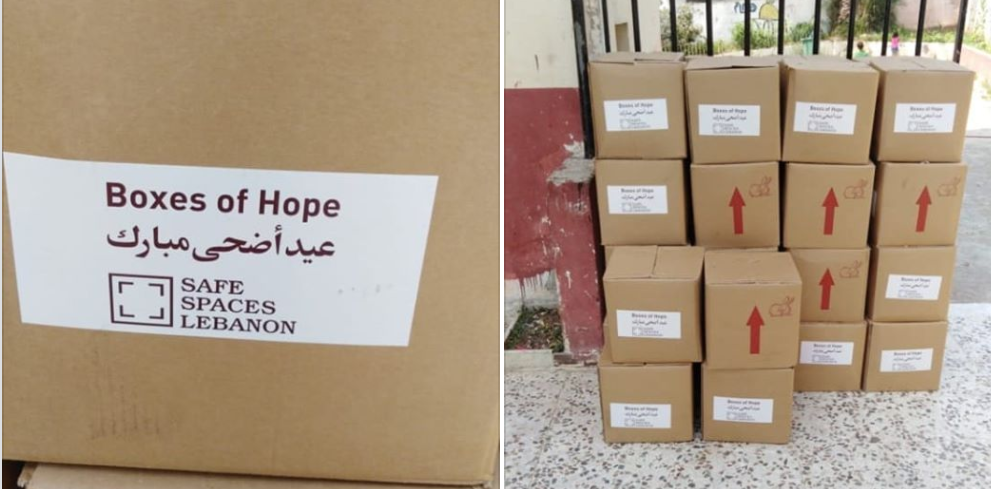
Summer Camp
From Math to Arabic to Computer, Safe Spaces summer camp offers the students a variety of classes for them to excel in. While introducing new topics to broaden the horizon of students and their interests, we insist on giving standard academic courses. Our goal is to ensure the students are prepared for their return to official schools in the next academic year, with a vision for the future, and the emerging needs for certain skills such as coding, and critical thinking…
#Safe_Spaces_Lebanon #computer_programs #academic_courses #math #children #students #coding #arabic #critical_thinking #skills #knowledge #syrian_refugee #lebanon @ Sidon, Lebanon
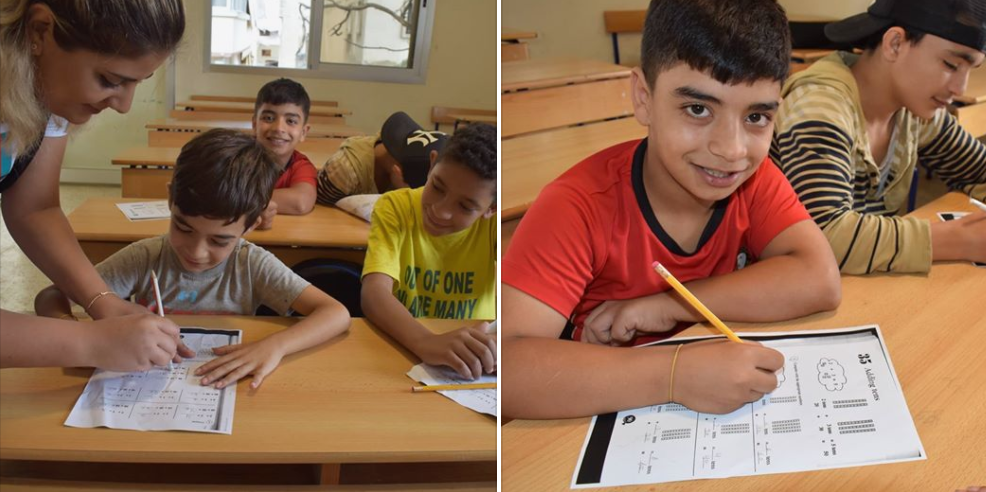
Fitr & End of Year Celebration
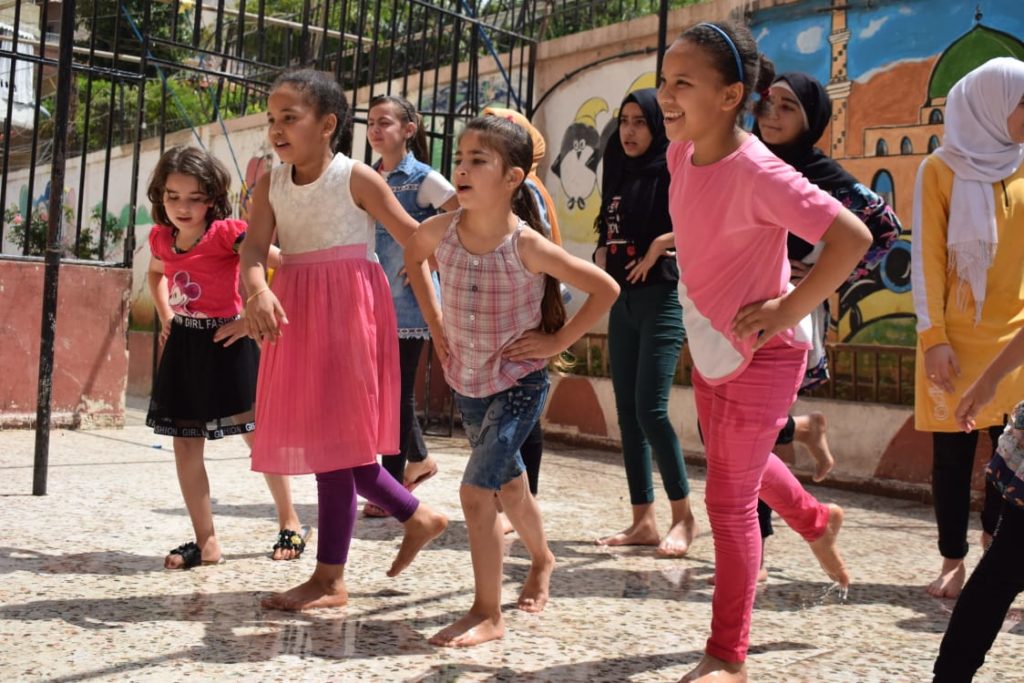
On the 4th week of May, Safe Spaces Lebanon organized an entertainment event for the students at the Al-Naddaf shelter for Syrian refugees in the occasion of al Fitr holiday, which coincided with the end of the academic year 2019-2020.
In the presence of the Director of the Lebanon Office, Mr. Ghaleb El Charif, and under the guidance of the teachers, different activities, competitions, and challenges were held among students, in addition to dancing.
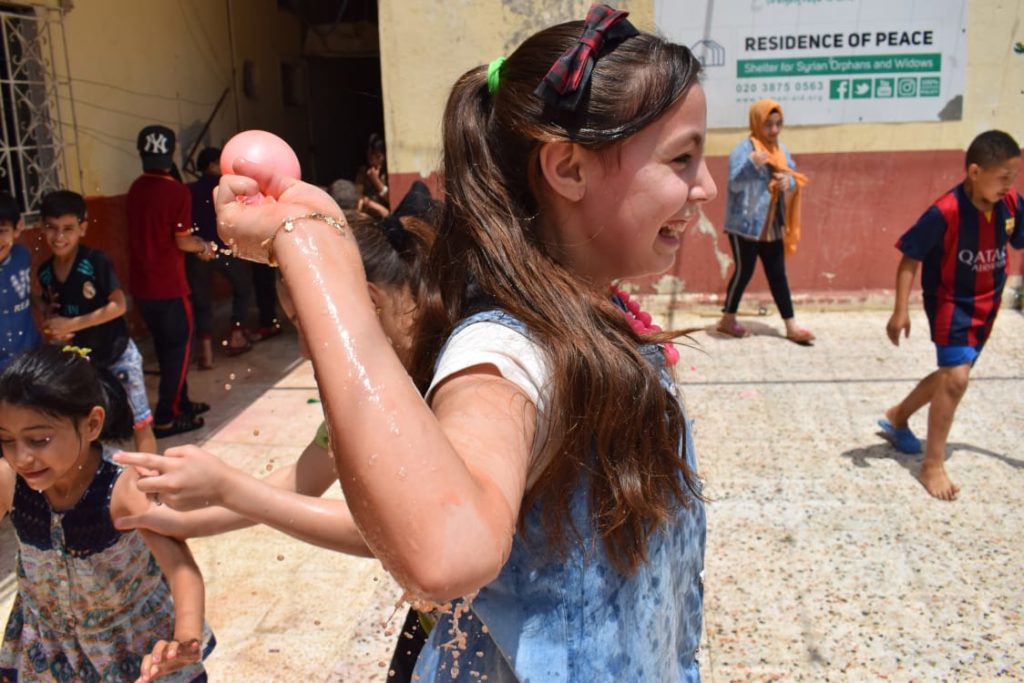
The event also included a balloon water fight, which added enthusiasm to the celebration environment during the heat.
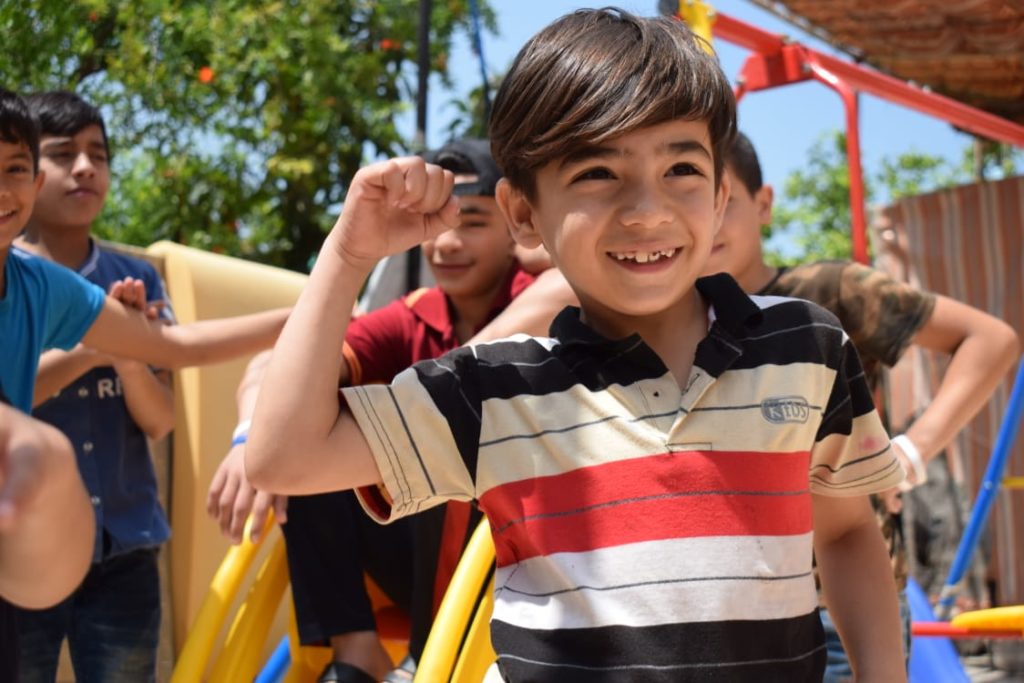
After the various activities, it was time for snacks, that is when croissants and juice were distributed to the children.
The event was culminated with the piñata, which increased the intensity of competition between the kids who rushed to collect the candies.
Delighted and entertained, especially after approximately three months of confinement, the children ended the winter-spring semester with ringing laughter and huge smiles.
Still learning despite challenges
The learning at Safe Spaces continues, even in these difficult times! Our educators have designed a continuous exchange of worksheets between themselves and the students. Students then take turns coming to the school to review their work and get any further instruction they need.
The students have been thrilled to reconnect with teachers and receive feedback on their work! The worksheets offer them a concrete way to continue to learn and stay engaged. Thanks to the success of the worksheets, we plan to continue this program as long as needed.
In addition, Safe Spaces continues to offer support through grocery delivery. Our team made sure that our families at the Naddaf shelter received groceries in time for Ramadan, so that everyone would have a full table in this holy month.


